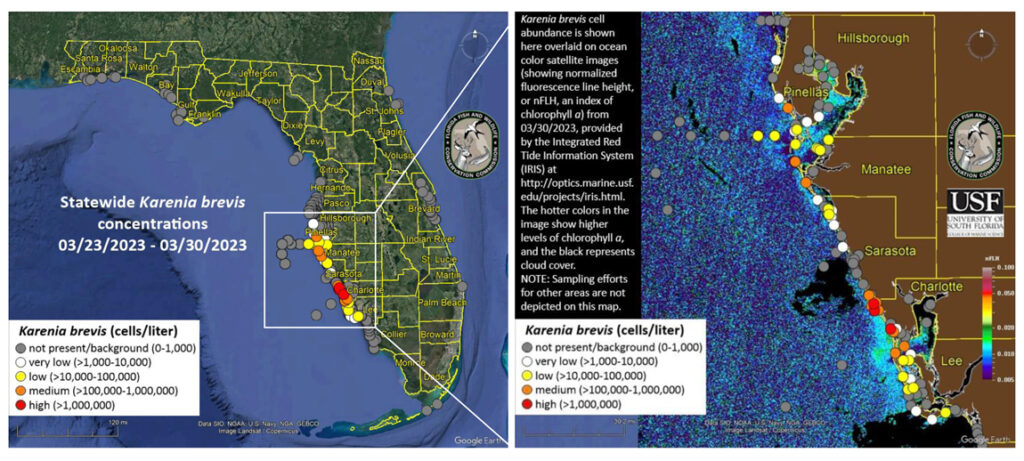UPDATE (March 31, 2023)
Water samples taken on 3/31/2023 have shown no/background concentrations of Karenia brevis in Redington Shores and low concentrations in Madeira Beach. You can check on Pinellas County’s Red Tide monitoring results by clicking here.
Red Tide
Red tide is a type of harmful algae bloom (HAB) caused by an increase or “bloom” in the concentration of certain microscopic algae in the water. The presence of red tide can affect some people and impact fish and marine wildlife.
If you experience any eye, nose or throat irritation while in an area with red tide, symptoms should go away if you leave the area. People with severe or chronic respiratory conditions such as asthma or chronic lung disease are cautioned to avoid areas with active red tide.
Red tide events have been noted in Florida since the 1800s and most certainly occurred prior to European settlement. The most common red tide organism in Florida is the dinoflagellate Karenia brevis (K. brevis). In high enough concentrations, the algae turns water a distinct red color. While K. brevis is a naturally-occurring organism, nutrient enrichment of our coastal waters can make blooms worse and longer-lasting.
Report Fish and Wildlife Impact
Contact Florida Fish & Wildlife Conservation Commission (FWC) to report fish or marine life impacted by red tide.
- Report a dead, sick or injured manatee or sea turtle to the Wildlife Alert Hotline at (888) 404-3922.
- Report fish kills to FWC online or call (800) 636-0511.

